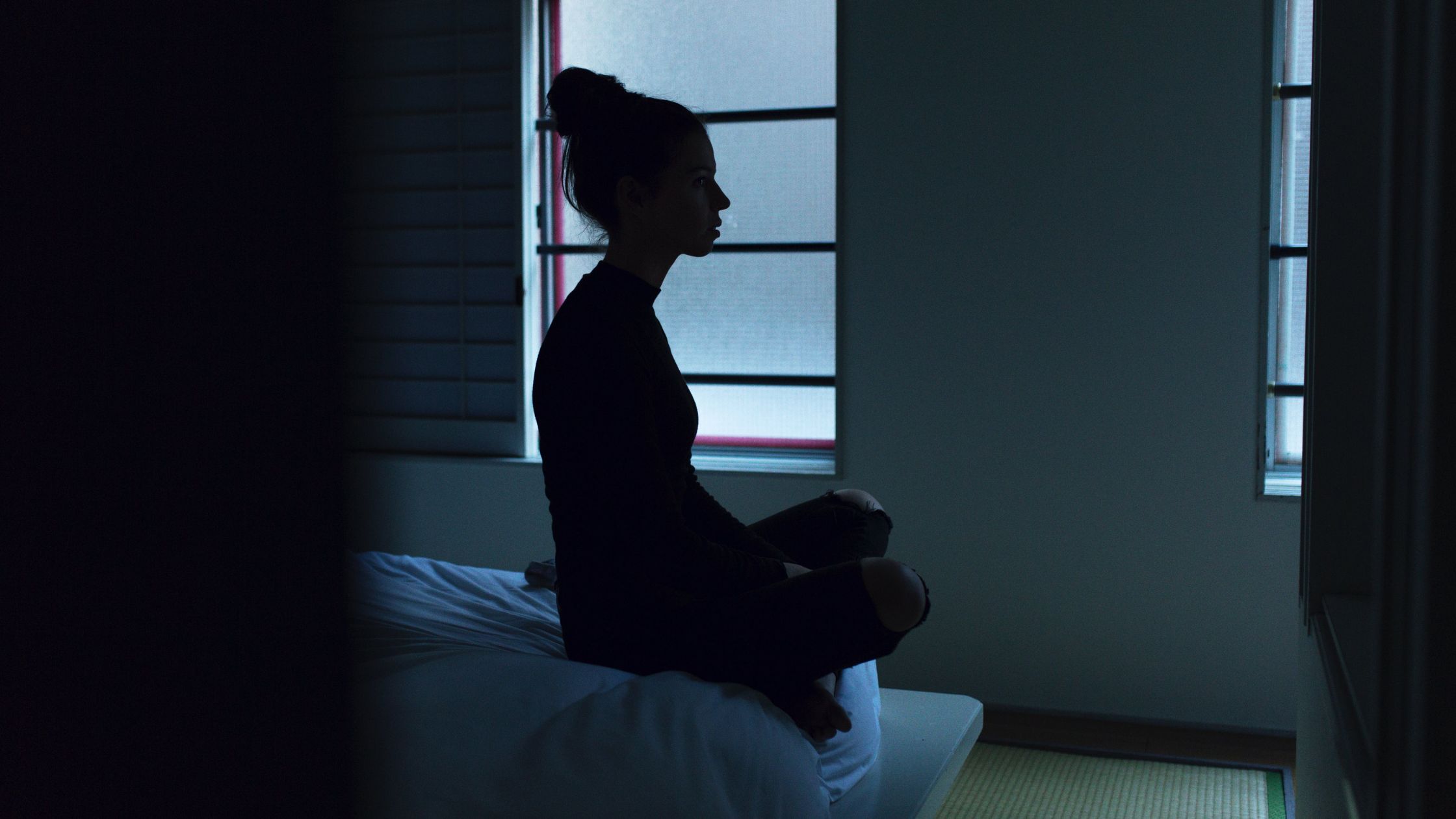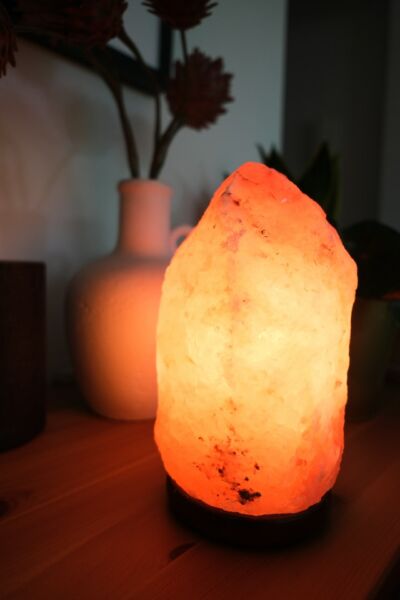Is It Better to Meditate in the Dark? Exploring the Benefits

One question that often comes up in the world of meditation: Is it better to meditate in the dark? Some people find that the darkness helps them focus better. Without any visual distractions, it’s easier to turn inward and concentrate on your breath or mantra. It can also be a more calming and soothing environment, which is especially helpful if you’re feeling anxious or stressed.
On the other hand, some people find that meditating in the dark can be unsettling or even scary. If you’re someone who’s afraid of the dark or has a vivid imagination, it might not be the best choice for you.
Ultimately, it’s up to you to decide what works best for your own spiritual practice. Whether you prefer to meditate in the light or dark, the most important thing is to find a quiet and comfortable space, free from interruptions, where you can focus on your breath and let go.
History of Meditating in the Dark
Meditating in the dark is not a new practice. It has been used for thousands of years by different cultures and religions. In ancient times, people would meditate in dark caves or other dark spaces to connect with spiritual energies and achieve a deeper level of consciousness.
In some cultures, darkness meditation is still practiced as a way to connect with the divine or achieve a deeper level of awareness. In modern times, its become more popular as people seek ways to reduce stress and improve their overall wellness.
Benefits of Darkness Meditation
Some people swear by meditation in the dark, while others prefer to keep the lights on. But what’s the deal? Is there really a right or wrong way to meditate?
Well, there are some things to consider when deciding whether dark meditation is right for you. Let’s explore the benefits of meditating in the dark and why it might be worth trying.
Increased Focus & Concentration
When you meditate in a dark room, you eliminate visual distractions, like movement or objects in your environment, that can interfere with your concentration.
The darkness acts like a sensory deprivation tank. This can help you focus more easily and deeply on your meditation practice especially if you’re someone who easily gets distracted and has trouble focusing.
Also, your eyes don’t have to work as hard to adjust to the changing light, which means your brain can relax and focus on your breath or mantra.
Meditating in the dark can be a great way to train your mind to stay focused on your meditation practice, which can then carry over into other areas of your life where focus and concentration are important.
So if you’re struggling with constantly getting distracted during your meditation practice, consider giving the dark a try. You might be surprised at how much more focused and centered you feel.
Improved Sleep
Improved sleep is one of the biggest benefits. Darkness is essential for the production of the hormone melatonin, which helps regulate sleep-wake cycles. When you practice in a dark room, you’re promoting the production of melatonin, which can improve your sleep quality.
Additionally, by getting your body ready to enter a deep meditative state, you’re preparing your body and mind for a deeper and more restful sleep. This can be particularly helpful if you’re someone who has trouble falling asleep or staying asleep.
Also, when you’re in a dark room, you’re creating an environment that’s conducive to sleep. You’re creating a calming and soothing atmosphere that can help you to relax and let go of any stress or worries that may be keeping you up at night.
By incorporating meditation in the dark into your nightly routine, you’re setting yourself up for a better night’s sleep and a more energized and productive day ahead. So if you’re struggling with sleep, consider adding a few minutes of meditation in the dark to your nightly routine and see how it can benefit you.
Reduced Stress & Anxiety
Meditation in the dark can be a great way to relieve stress, reduce anxiety, and benefit your overall mental health. When you’re in a dark room, you eliminate distractions. This can help you to relax and let go of negative thoughts and emotions that may be causing you stress or anxiety.
Additionally, meditation in the dark creates a calming and peaceful environment that can help you to feel more at peace. The darkness can be a metaphor for letting go and surrendering to the present moment. It’s a reminder that you don’t have to be in control of everything and that it’s okay to simply be.
By practicing meditation in the dark, you’re training your mind to let go of negative energy, and to embrace a more peaceful and relaxed state of being. This can have a positive impact on your overall health and well-being, both physically and mentally. So if you’re feeling stressed or anxious, consider darkness meditation and see how it can benefit you.
Activation of the Pineal Gland
The pineal gland, once know as the third eye, is a small gland located in the center of the brain that produces the hormone melatonin. Melatonin is responsible for regulating our sleep-wake cycle and our body’s internal clock. Meditation in darkness activates this gland, which leads to increased production of melatonin.
This increase in melatonin production can have a range of benefits, including improved sleep quality and duration, decreased anxiety levels, and increased overall wellness. Melatonin is also an antioxidant, which means it can help protect against cell damage and slow down the aging process.
Dark meditation can also help regulate our body’s circadian rhythm, which is our internal clock that regulates our sleep-wake cycle and other bodily functions. When we meditate in the dark, we are telling our body that it’s time to rest and relax, setting our internal time clock.
In addition to its effects on melatonin production, its also associated with spiritual and mystical experiences. Some people believe that activating it can lead to a deeper level of consciousness and spiritual awareness.
Disadvantages of Meditating in the Dark
While meditating in the dark has many benefits, it’s important to consider some potential disadvantages before making a decision if its right for you.
Feeling Sleepy
One potential disadvantage of meditating in the dark is feeling sleepy. When you eliminate visual stimuli, your body may interpret this as a signal to sleep, which can make it challenging to stay awake. This is especially true if you’re meditating at night, as your body is naturally programmed to sleep during this time.
If you find yourself feeling sleepy during your meditation practice, there are a few things you can try to help stay awake. First, make sure you’re in a comfortable seated position and not lying down. If you feel sleepy laying down to meditate is just asking for trouble.
You can also try taking a few short deep breaths or doing some gentle stretches before you begin your practice to help wake up your body. Breath of fire, or bellows breath are great breathwork exercises when you need energy.
Another helpful technique is to focus on your breath or a visualization and try to stay present in the moment. If your mind starts to wander or you feel yourself getting tired, bring your focus back to your breath.
Fear of the Dark

Another potential disadvantage of meditating in the dark is the fear of the dark. Let’s face it, not everyone is comfortable in complete darkness. Fear of the unknown is after all one of the most basic human fears.
If you’re someone who gets anxious or scared when you just close your eyes, staring in a pitch-black room might be very difficult. It can be challenging to relax and focus on your breath when you’re feeling uncomfortable or fearful. If this sounds like you, don’t worry there are still ways to make meditating in the dark more comfortable for you!
One option is to start small and gradually work your way up. Begin in a slightly dim room or with a small night light. Instead of choosing a dark night, pick a time when the light is dim during the day and close your curtains. Try lighting your room with a candle or a dim lamp. This can help provide a sense of comfort and ease any fears you may have.
Choose a type of meditation that will give you a strong mental anchor. Mindfulness meditation exercises are the most helpful. You could try using a guided meditation to help you stay focused and calm. Another option is to use visualization meditation techniques to imagine yourself in a calming and peaceful environment, such as a cozy cabin or a serene beach at sunset. Mantra meditation can also help distract from the total darkness.
Remember, the goal of meditation is to find a peaceful and calming environment that works for you, so don’t be afraid to experiment and find what feels best. With time and practice, you may find that this will eventually become a relaxing and comforting part of your daily routine.
Tips to Prepare for Meditating in the Dark
Before you begin your meditation practice, take some time to prepare yourself. Make sure you are physically and mentally prepared.
Take a Deep Breath
Breathing exercises can help you either calm down, or give you energy depending on how you feel. Try humming bee breath or 4-7-8 breathing if you’re feeling extremely stressed. If you need more energy try breath of fire, or bellows breath.
Practicing Relaxation Techniques
To help reduce feelings of anxiety, it can be helpful to practice mindfulness techniques before you begin your meditation. This can include visualization exercises, or progressive muscle relaxation.
If you’re feel restless, or physically uncomfortable trying stretching or going for a walk beforehand.
Setting up a Comfortable Space
Finally, make sure you set up a comfortable space for your meditation practice. This can include using a comfortable cushion or chair, wearing comfortable clothing, and using a blanket if needed.
Is it Better to Meditate in the Dark?
So, is it better to meditate in the dark? Meditating in the dark can have a range of benefits, including increased focus, improved sleep, decrease stress and anxiety, and activation of the pineal gland. While there are some potential disadvantages to consider, with the right preparation and techniques, this can be a powerful tool for promoting overall wellness.
Remember, meditation is a practice that takes time and patience to master. Whether you choose to practice in the dark or in a well-lit room, the most important thing is to practice regularly and with intention. With time and practice, you can experience the many benefits of meditation and improve your overall health, well-being, and spiritual growth.














